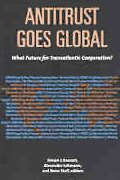Over the past year a grassroots campaign to eliminate Immigration and Customs Enforcement (ICE) has gone from a hashtag on Twitter to a bill introduced by Rep. Marc Pocan (D-Wisc.) last week and a resolution passed by Republicans.
The campaign to abolish ICE has picked up steam in recent months in some parts of the Democratic Party, and since June the issue has started to move into mainstream political debates as a broader backlash against ICE has grown. When asked about Alexandria Ocasio-Cortez’s platform calling to abolish ICE, Sen. Kirsten Gillibrand (D-N.Y.) said she didn’t think “ICE today is working as intended.” Sen. Elizabeth Warren (D-Mass.) has called for replacing ICE with “something that reflects our morality and that works.”
The backlash has been strong enough that a group of ICE employees in its Homeland Security Investigative Division wrote to Secretary Nielsen and asked for their unit to be separated from ICE. They cited the politicization of Enforcement and Removal Operations as an obstacle to their mission. The administration’s response has been unequivocal. Mike Pence gave a speech at ICE headquarters saying “the calls to abolish ICE are not just outrageous, they’re irresponsible.” And of course, the president has repeatedly weighed in on Twitter:
The Democrats are making a strong push to abolish ICE, one of the smartest, toughest and most spirited law enforcement groups of men and women that I have ever seen. I have watched ICE liberate towns from the grasp of MS-13 & clean out the toughest of situations. They are great!
— Donald J. Trump (@realDonaldTrump) June 30, 2018
Pocan’s legislation notes that ICE has drifted from its core mission as defined by the Homeland Security Act, “to prevent acts of terrorism.” In the course of deporting anyone who has entered or re-entered illegally, ICE spends, according to the bill, “billions of taxpayer dollars” detaining people in facilities run by for-profit companies. The bill makes the case that in addition to costly mission creep, ICE is not able to hold itself accountable. The preamble leans on reports by the DHS Office of Inspector General and other organizations pointing to problems in inspections, treatment of detainees, and medical care.
So what solution does Pocan’s bill call for?
The bill would establish a bipartisan commission to evaluate which functions of ICE are critical to upholding both U.S. and international law, and transfer them to another agency. There’s a provision to ensure that this doesn’t cause a reduction in federal employment, but rather than replacing ICE enforcement employees in the new agency, the bill calls for “prioritizing the hiring of personnel to address the legal, health, and social-service needs” of detainees and asylum-seekers. It’s a vision of immigration policy that’s diametrically opposed to Trump’s, particularly his call for 10,000 more ICE officers.
Rather than seeing this as a purely symbolic, dead-end bill, Republican House leaders initially seized this opportunity to press Democrats on an issue that divides progressives and moderates, and planned to bring the bill up for a vote before the August recess. But the bill’s Democratic sponsors issued a statement calling the vote a “political stunt” with no serious chance of passage, and said they would vote no. Republican leadership abandoned that plan and instead passed a resolution from Clay Higgins (R-La.) expressing support for ICE, which reads that “calls to abolish ICE are an insult to these heroic law enforcement officers who make sacrifices every day to secure our borders.”
In the House debate, Rep. Mark Pocan called the resolution a “misdirection” away from family separations and child detention. Rep Henry Cuellar (D-Texas) said that ICE has become a lightning rod for anger at the Trump administration’s “hardline immigration policies” and that it still performs vital law enforcement functions. Majority Leader Kevin McCarthy (R-Calif.) referred to a “growing socialist movement in the Democratic party” that believes the U.S. “should have no borders.”
Following these familiar partisan pathways, the debate was one more illustration of the gridlock over immigration issues that has dominated Congress this year.
The Brookings Institution is committed to quality, independence, and impact.
We are supported by a diverse array of funders. In line with our values and policies, each Brookings publication represents the sole views of its author(s).











Commentary
The “abolish ICE” campaign arrives in Congress
July 18, 2018